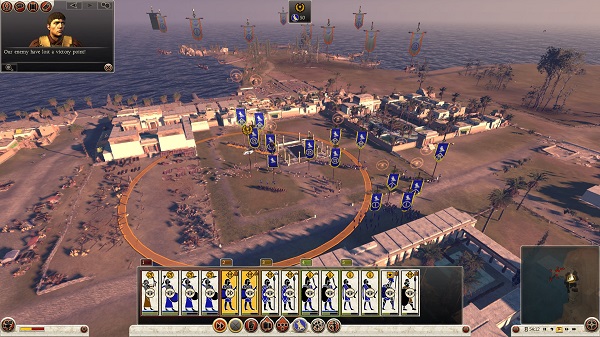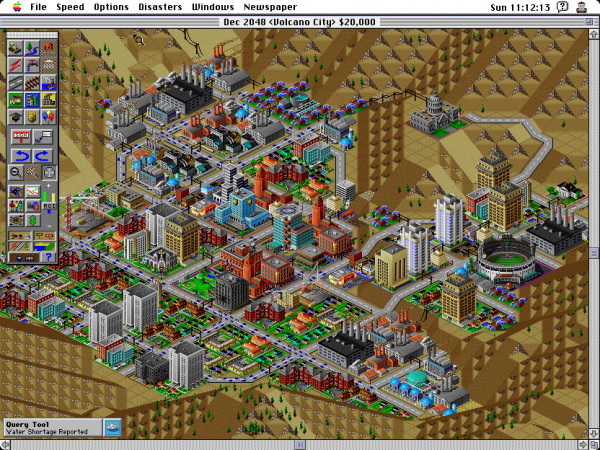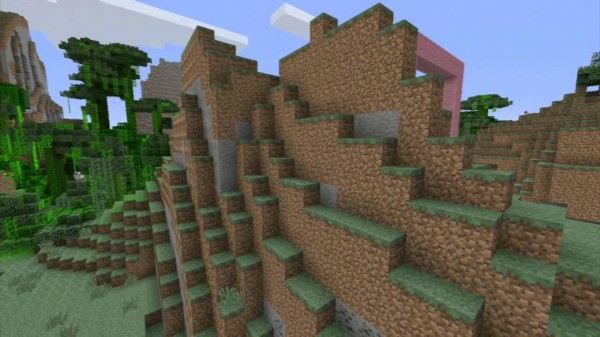
Gaming has always had its roots in reality. Whether it was attempting to teach a valuable skill, or simply for replicating a situation in a more controlled environment. Traditional games like Chess, Backgammon, and Go are often cited as examples of improving logical and strategic thinking. Good for learning to spot patterns in others’ behaviour, and probably overthrowing invading armies.
Continues after the break
There has been some research done into the educational value of games. And while most of it focuses on the direct educational outcome of the game itself, this research often leaves the incidental gleaning of information from other themes of the games played.

For instance, this particular news article from 2002 on the BBC talks about how games like Sim City and RollerCoaster Tycoon encourage reading and strategic planning.
Modern games draw on the same military strategic background as Chess and Go with real-time strategy (RTS) games. Some even try to use the same historical context for the game. The Total War series of games are set across several time periods in history. The earliest used the backdrop of Japan during the Sengoku Jidai era, where many clans fought for control of Japan and the Emperor. This theme of portraying historical time periods would be continued throughout the rest of the Total War series.
The most recent game, Total War: Rome II then took a new approach to building hype for its release. Aside from the usual gameplay videos and teaser trailers, Creative Assembly also paid the webseries Extra Credits to create a video to promote the game. The difference is, they didn’t want a video praising their game; instead the money went into a series of videos explaining the Punic Wars. History lesson and marketing campaign all rolled into one.

While Creative Assembly used this sort of marketing as a one-off campaign, Wargaming.net – developers behind World of Tanks – takes it to a different level. For instance, this article explains in great detail why the American army refused to adopt the British 17pdr cannon for their M4 Shermans during World War II. There is also a series of extremely rare tours of tanks, which is worth a watch even to those who have no idea the game exists.
Military history has shaped more of our modern civilisation than most realise, and using games to spark an interest is one of the better methods of educating our youth. After all, while a 13-year old might fall asleep reading about the trade routes of agrarian societies, he might be more interested if those trade routes were the same used by Vikings to sack those societies.

Admittedly, not everyone will want to jump into the details of Hannibal’s personal vendetta against Rome. History tends to appeal to an older crowd; at least that appears to be the case from my own experience.
A more direct approach to learning might come from games like Minecraft and Kerbal Space Program. Both these games are of the sandbox variant, with players wandering around to their hearts content. However, the underlying mechanics allow for a great amount of depth.

A fact that hasn’t gone unnoticed by a group known as TeacherGaming has been working with both Mojang and Squad to create classroom version of the two games. Ideally, this will create an interactive learning environment inside the framework of Minecraft and Kerbal. MinecraftEdu is already out and available for teachers to build virtual classrooms for students.
Minecraft is secretly a maze of logic puzzles and promotes creative problem solving within the pixelated world. Outsiders will be mainly familiar with the blocky mega-structures and impressive reproductions of entire fictional worlds; however, the devil is in the details when it comes to Minecraft. The things people do with Redstone switches is terrifying.

Kerbal is slightly less tedious in the need to acquire materials, but no less complex in its execution. Getting a rocket into space might be easy enough; just strap rockets to a command pod and hit ignition. Getting the rocket to do anything else is a massive feat of mathematics. KerbalEdu, the educational version of the game, promises specially designed lessons for teaching in the classroom. This is probably for younger students, but it isn’t too much of a stretch to imagine it also applying to university physics lessons.
Learning from video games might not be very popular with traditionally minded people, but it will definitely cause the people who are going to be doing the learning to perk up. Unfortunately, applying it to an education system is extremely expensive and rarely cost effective. In the meantime you can settle down and rest easy in knowing your leisure time in front of the gaming rig isn’t entirely wasting your life.
That being said, you are still probably not learning anything from Battlefield 4 or Call of Duty.

